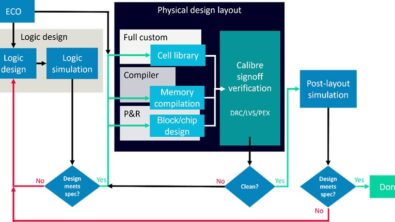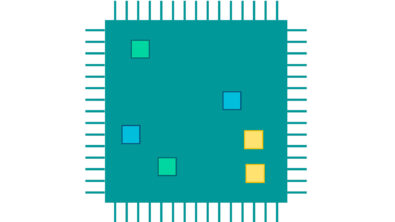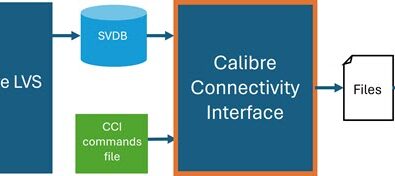Inspiring the next generation of EDA engineers

As the semiconductor market grows, so does the need for qualified engineers throughout the semiconductor ecosystem. Of course, the supply of engineers hasn’t kept pace with the demand. Electronic design automation (EDA) companies have felt the pinch. The EDA market is in a period of exceptional growth and will continue to grow at around 10% a year, taking the total market from $14B in 2022 to about $31B by 2030. The growth is accompanied by increases in the sophistication of the EDA software used to design chips for artificial intelligence, internet of things, 5G, automotive, and datacenter. EDA engineers need skills in system analysis, integration, multi-core computing, cloud computing, and artificial intelligence/machine learning.
“The growing difficulty of electronic design automation requires dedicated knowledge to make and improve such systems. Designers and engineers with the expertise and capability to manage complex designs are in high demand among the industries in the industry. As a result, there is a requirement for skilled specialists, which can surge the competition for talent.” – Research and Markets, global EDA industry demand forecast.
The challenge of developing and attracting new engineers for EDA is being addressed through efforts of companies like Siemens EDA through our student and early career programs and by professional societies, federal and state policies, and universities. These programs aim to inspire students to study engineering and then navigate their education and early career.
This is the setting for a “Design the Solution” event on August 29 at the University of Texas at Austin’s Chandra Department of Electrical & Computer Engineering sponsored by the GSA Women’s Leadership Initiative. The half-day conference gave attendees – freshmen and sophomore engineering students – insights into the spectrum of diverse career paths and professional growth in the semiconductor field.

Siemens EDA was represented by software engineer Melody Tao, who participated in a panel discussion focused on real experiences in the semiconductor industry. Melody graduated from UC Davis and has been working for about 2.5 years. Her job includes setting up testing for CICD (continuous integration/continuous deployment), designing frontend APIs for our products, and packaging our product. “Our team is very startup-like, but within a large company, so I have my hands on many aspects, including occasional research and experiments on datasets to test various ML models,” Melody said. Melody has taken on more responsibilities organically by volunteering for work or being assigned work that is adjacent to what she was doing. She also contributes by suggesting improvements to tools or processes.
Here’s a review of the questions and answers from the UT Austin panel.
Question: What’s your view of the importance of internships?
Melody: Internships give you exposure to the actual workforce early on. It’s a big advantage to get the experience while in school rather than being dropped immediately into the deep end on your first job. Internships ease you into using the common tools of the industry, for example, extensive use of software version control and testing the code for robustness. Internships also teach you the soft skills that you don’t learn in school, such as learning how to speak professionally to coworkers, how to send emails, how to work in a larger team, make presentations, etc.
Question: What advice would you give to your younger self.
Melody: Do not be afraid of asking questions. Questions are how you learn, and it doesn’t make you dumb to ask them. People are more willing to answer questions than you think. What I found helpful during my career is to pay attention to people you admire and see if they ask questions – because they will. If they can, then so can I.
This approach of asking questions means you shouldn’t try to be the smartest person in the room. If you are, then you can’t learn from anyone else
Question: Tell us about different jobs and career paths in Siemens EDA.
Melody: Most of the product-related roles would benefit from an engineering degree but for others, like the pure sales roles, if you have some basic domain knowledge you should be able to learn on the job and be successful. Jobs roles include:
- Software engineer
- QA engineer
- Product engineer – focused on a couple of products, research and development
- Product management – people who start off in other roles (software, QA, or product engineers) can typically gain experience into this role
- Application engineer – focused on customer collaboration skills and working in the customer environment to understand their day-to-day issues and solve problems, be the interface with the factory
- Technical writers – work closely with engineering to develop and publish user documentation
- Business development roles – these often start in application engineering and move on to sales with some experience
- Eventually management roles for all the above areas
At Siemens EDA, we mostly hire people with majors in EE, CS, ML, chemical, math, physics, mechanical, and material sciences. For software R&D, you should know C/C++. QA needs to know scripting (Python) and product managers also benefit from scripting skills.
Question: What emerging trends or technology do you foresee as having an impact on the semiconductor industry?
Melody: I see the trend of “Industry 4.0” growing in importance, along with the concept of a digital twin taking hold in the semiconductor space. Industry 4.0 is about manufacturing being represented in the digital space where automation and data exchange are major features. Siemens already offers tools that increase the automation of semiconductor fabs using technology like ML/AI, cloud computing and data lakes. Specifically with the digital twin, we’ll be able to represent the fab, or parts of it, in a digital space, capture all the data generated and use it to improve the entire operation. The idea is for fabs to run more efficiently and to move closer to their sustainability goals.
The UT Austin event “was a good experience for me and a good experience for the students,” Melody said. “They were able to come talk to us afterwards, hear about our experiences working in major companies in the semiconductor field, and understand what career opportunities they have.”


